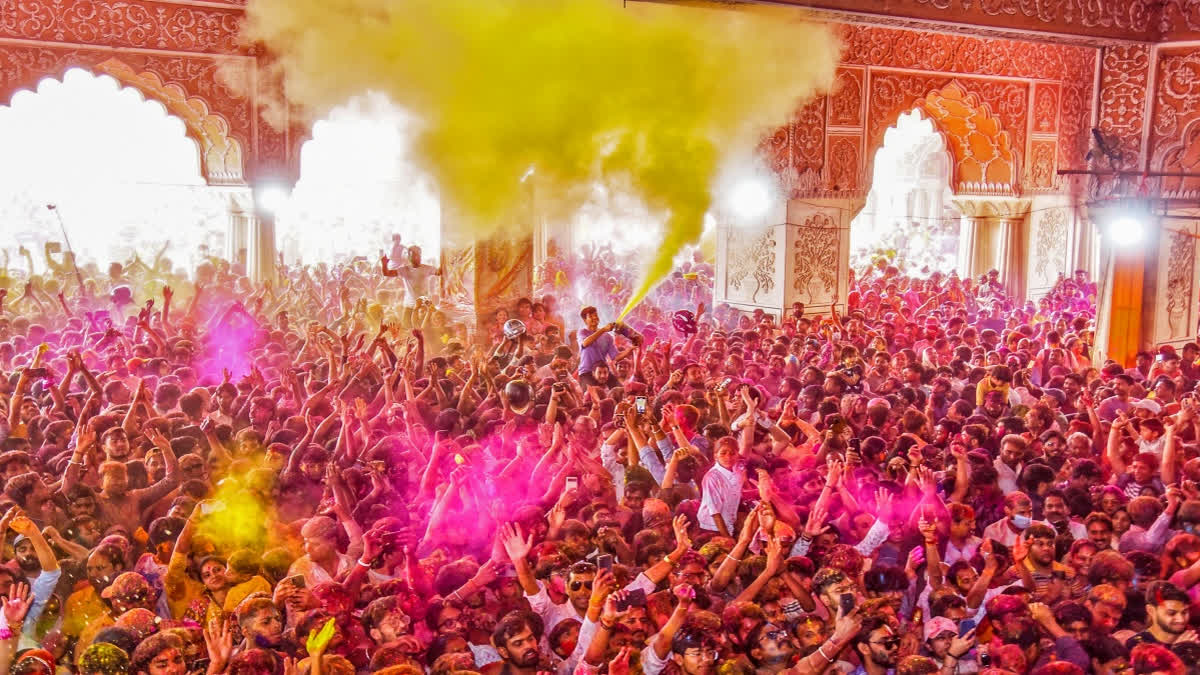Jaipur: Being a widely spoken language across North India, Hindi has embedded its place in the people's hearts beyond other differences. One notable connection is the special bond between Hindi and Jaipur, Rajasthan's vibrant capital city. On this National Hindi Day, let's explore the cultural interconnections of the Pink City with Hindi.
The names of the lanes, mohallas, markets and shops here are engraved in Hindi. English words are even written in Hindi scriptures. According to Devendra Kumar Bhagat, a local historian, Hindi has been spoken in Jaipur since Sawai Ram Singh's time. According to him, Dingal and Pingal, two forms of the Rajasthani language are seen as the native versions of Hindi.
"Jawahar Mal Jain, a philanthropist from Jaipur, generously donated to the Kashi Nagari Pracharini Sabha to promote and propagate the Hindi language. Notably, Jaipur was also the publishing hub for renowned Hindi literature, including works by Chandradhar Sharma Guleri. A significant milestone was achieved in 1934 when Hindi became the state language of Jaipur, replacing Persian in court proceedings. The freedom movement in the region was also largely driven by Hindi. Moreover, Hindi was integrated into Jaipur's education system, and even everyday transactions like money lending and account books were conducted in Hindi", said Rajendra Gupta.
Rajendra Gupta, president of Tripolia Bazaar, the only heritage market of Jaipur, said the nameplates on the shops of Jaipur were written in Hindi and the traders of Jaipur have kept it alive even today. He appealed to the traders to issue bills in Hindi.
According to Jaipur Vyapar Mahasangh President Subhash Goyal, the reason that the business class has been carrying Hindi with them is the ease of communication between traders and customers. Despite Jaipur's rich history of embracing Hindi, the language is slowly disappearing from markets outside the walled city. The names of the shops are written in Hindi. The ledgers are being written in Hindi even today.
However, Hindi is now disappearing from most of the markets outside the walled city. The rise of modern showrooms and gleaming signboards has left Hindi behind, as evident on the city's prominent MI Road. Suresh Saini, General Secretary of MI Road Vyapar Mandal, notes that Jaipur's markets have maintained uniformity since the era of kings and Maharajas, with Hindi being the language of choice. The people of Jaipur understand, respect, and speak Hindi. In this context, the Vyapar Mandal appeals to traders to preserve and promote Jaipur's heritage by continuing to use Hindi in their businesses.



